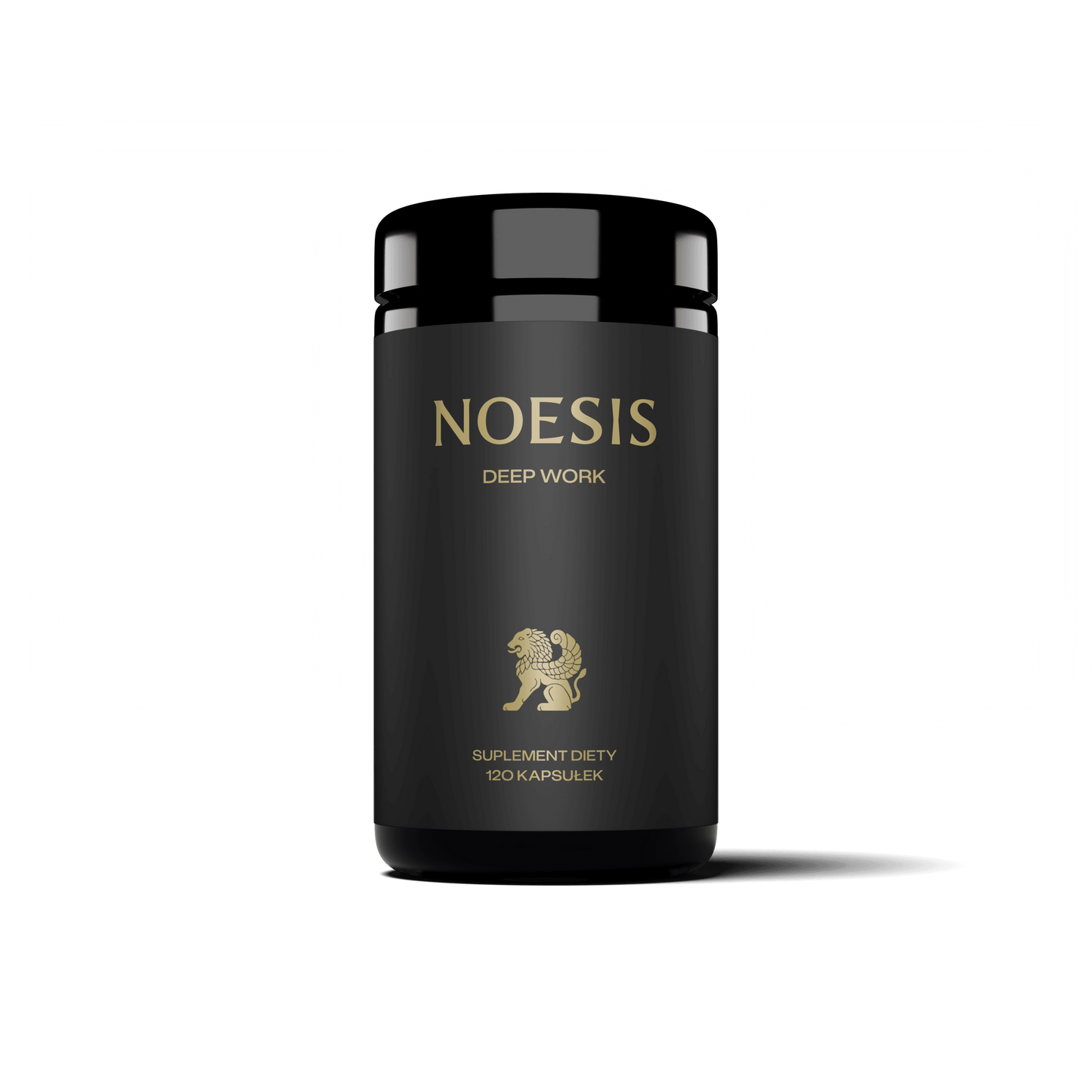
Big goals sound good on paper. You want to build a business, win a medal, learn a new language, write a book, achieve financial independence. You plan, you dream, you are full of energy. And then life comes – discouragement, fatigue, burnout, lack of action. And this is where the question arises, which will decide whether you will achieve your goals. How to persevere? What to do to act when you don't feel like it? What drives a person when the "high" of excitement wears off?
Defining your goal is the first step
Every path begins with a direction. Without it, you’ll just be going in circles. Defining goals is not just a starting point, it’s also a filter that organizes actions, decisions, and time. If you don’t know what you’re aiming for, every activity will be a random movement. Goals allow you to give meaning to your daily tasks. They’re what connect individual movements to long-term results.
The goal is the intended effect of action, which organizes the behavior of the subject and leads to obtaining specific results. In other words, goals influence cognitive processes, help assess what is worth doing and what is not. This is why their definition is crucial . Without a clearly formulated goal, there is no plan, there is no perseverance.
Goals that really matter
Not every goal is equally motivating. The strongest power is held by those that result from values, meaning they are truly important to you. Social goals, financial goals, goals related to personal development or learning new skills – each of them can be a driving force, but only if they are embedded in your “why”. Otherwise, they will quickly become an empty slogan.
In practice? If your goal is to “earn more,” ask yourself: why? If you want to “lose 10 kg,” ask yourself: what will that give me? When you find a reason that aligns with your value system, motivation will cease to be a momentary impulse and will become a long-term drive.

Intrinsic vs. extrinsic motivation
Motivation is the force that gets you going. But not every force works equally long. Extrinsic motivation is rewards, recognition, bonuses, praise – everything that comes from the outside. It works quickly, but most often in the short term. When the reward disappears, so do the desires. Meanwhile, intrinsic motivation is based on values. It is what allows you to act even when no one is watching, judging or rewarding.
This doesn't mean that external motivation is bad. In some moments, it can be an effective trigger. But if you want to survive a marathon, not just start a sprint, you need something deeper. You need to know why you're doing it and how it fits into your life.
The trap of motivational thinking
There is a trap in personal development that many people fall into: the belief that if you are not motivated, there is something wrong with you. That you have to wait for "inspiration", flow, inspiration. This is nonsense. Motivation is a variable. True power is action despite the lack of motivation .
That's why "motivational videos" or "quotes of the day" only work for a short while. They'll stir up emotions, but they won't build a system. The problem isn't that you're not motivated enough. The problem is that you're basing your effectiveness on something that's not stable. You know what's stable? A plan. A structure. A habit. Awareness of what's really important.
Achieving goals requires strategy, not just excitement. It requires making decisions in advance, creating an environment that supports action, and working at a system level, not an impulse.
Motivation and action functions
From a psychological perspective, motivation has several important functions: it initiates action, directs energy toward a goal, regulates the intensity of effort, and influences the maintenance of commitment . But action has its power even when you don’t feel the “power.” The very act of doing a task can arouse commitment. In other words, you don’t always act because you’re motivated. Sometimes action motivates you along the way .
This is key in long-term projects where you can't feel excited every day. Keeping the function of the action , even the simplest, keeps you moving. And movement creates energy. And that energy drives you on.
In science, in sports, in business, those who have been able to act regularly are most often the winners. Not the fastest. Not the most spectacular. But systematically, consistently, day after day.
How to stay motivated as long as possible?
This isn’t a rhetorical question. This is a question about how to stay on track. Staying motivated means staying on track even when everything around you is distracting you. How do you do that?
First: come back to your why . Regularly remind yourself why you are doing this. Let it not be a slogan, but an inner compass.
Second: Celebrate small accomplishments. The brain needs a reward, proof that you're making progress. Even if it's just checking another task off your list.
Third: find an environment that supports. Motivation grows when you are part of an environment that has similar goals. This works in business, in sports , in science and in any long-term work on yourself.
Fourth, reduce the noise. Too many distractions cause your goals to get lost in the throng of stimuli. You need time, space, and structure to persevere.

Why don’t you take action even though you have a set goal?
Here we come to the heart of the matter. In theory, everything is correct: the goal is defined, the motivation is there, the plan is prepared. And yet nothing happens. Why?
First, the brain doesn’t like effort. Biologically, we are programmed to conserve energy. There is a cost to completing a task , not just physically, but emotionally and cognitively. That’s why we so often fall into the trap of procrastinating, even though something is important to us.
Secondly, inaction can be a consequence of overload. Too many stimuli, open projects and endless notifications cause our self-management system to simply freeze.
At the end, discouragement appears, which often results from the lack of quick results. You want to see progress, but it does not come immediately. And this is when the most important force in the long run enters the scene, namely perseverance .

PERSEVERANCE > MOTIVATION
Motivation is a great start. But it is perseverance that makes you finish. Success in any field is much more often the result of perseverance than of talent or high intelligence. That is why so many people start with enthusiasm and only a few reach their goal. Perseverance means being ready despite fatigue, despite obstacles, despite the lack of immediate results.
Angela Duckworth, the author of the concept of "grit", or persistent determination, showed that it is not just a character trait, but a skill that can be trained. Perseverance does not come from motivational quotes, but from habits, daily actions and awareness of the goal. You know why you are doing it, so you do it. Not because you have "inspiration". But because it is required to carry out your plan.
Planning and strategy, the foundations of achieving goals
Talking about goals without a plan is like buying a map and standing there. Planning your actions is the bridge between intention and execution. It doesn’t have to be complicated, just a structure that allows you to set priorities, anticipate obstacles and break down your goals into specific tasks. A well-planned day means less room for chaos, fewer decisions to make “on the fly” and greater effectiveness.
Planning assumes specificity. Not only WHAT you want to do, but WHEN, WHY and HOW TO MEASURE IT . It is not bureaucracy. It is psychological relief. Because when your brain knows what to do, it does not use energy on constant decision-making. And that is when real action begins. Planning is one of the basic regulatory mechanisms in human behavior. It helps not only in organizing time, but above all in maintaining motivation and increasing the probability of achieving the goal.
Fatigue, discouragement, lack of strength. What next?
You know that moment when you've had enough. You have no strength, everything hurts physically, but also mentally. A thought pops into your head: "What's the point of all this?" This is a crisis moment. Fatigue , both cognitive and physical, is a consequence of long-term effort. But it doesn't have to end the game.
This is where awareness , the ability to rest and flexibility come into play. Sometimes it's not your motivation that runs out, it's the glycogen in your brain. Sometimes you don't have to question your goal, just take a break, sleep, breathe, reformulate your strategy.
You are not a robot. You are a human being. And as a human being, you have limitations. But that does not prevent you from achieving big goals, as long as you understand them and manage them wisely. Perseverance is not about constantly pushing endlessly. It is about getting back on track , even if you have temporarily strayed. Sometimes you take a step back so that you can move forward with greater strength.
On the way to your goal, don't count on a burst - count on yourself
Ultimately, it all comes down to one thing: What do you really want to achieve in your life ? Goals that are just for others won’t last. Goals that are disconnected from your values will crumble under stress. But goals that stem from your identity will keep you going even when nothing seems right.
Don't expect it to be easy. It probably won't be. But that only means that it's worth preparing: for a crisis, for a lack of motivation, for burnout. It's all part of the process. And you can handle everything if you don't count on a spurt, but build a system.
Motivation is the spark. Perseverance is the fire. Together they give you the tools to achieve goals that make sense. And even if the path is difficult, you are the one who decides the pace on it.
Your action. Your drive . Your persistence. Your success.







